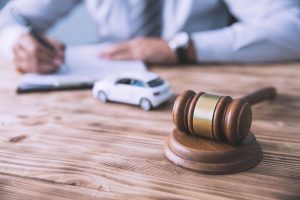Introduction
Facing a trial for a car accident claim can be a daunting prospect. However, understanding the process can alleviate anxieties and empower claimants to navigate it effectively.
Preparation Phase
Before entering the courtroom, thorough preparation is crucial. This involves gathering all pertinent evidence related to the accident and consulting with experienced legal counsel who can provide guidance on strategy and representation.
Filing the Lawsuit
The formal initiation of legal proceedings begins with filing a lawsuit against the responsible party. This involves submitting the necessary documentation to the court and ensuring proper service of the complaint to the defendant.
Discovery Process
During this phase, both parties exchange information pertinent to the case. This includes depositions, where witnesses provide sworn testimony, and interrogatories, written questions that must be answered under oath.
Mediation and Negotiation
Prior to trial, parties often engage in mediation to explore settlement options. Mediation allows for a facilitated negotiation process, potentially avoiding the need for a trial altogether.
Trial Procedures
Once the case proceeds to trial, various procedures unfold. These include jury selection, opening statements from each side outlining their case, the presentation of evidence, and witness testimonies.
Cross-Examination
During cross-examination, attorneys have the opportunity to challenge witness statements presented by the opposing party, aiming to undermine credibility or expose inconsistencies.
Closing Arguments
Closing arguments serve as the final opportunity for attorneys to persuade the jury. They summarize key points and advocate for their client’s position using persuasive rhetoric.
Verdict and Judgment
Following deliberation, the jury reaches a verdict, determining liability and potential damages. The court then issues a judgment based on the jury’s decision.
Appeals Process
In some cases, either party may choose to appeal the verdict if they believe legal errors occurred during the trial. This initiates a separate legal process focused on challenging the initial outcome.
Recovery Phase
Upon securing a favorable judgment, the claimant enters the recovery phase, where efforts are made to implement the judgment and collect awarded compensation from the responsible party.
FAQs (Frequently Asked Questions)
Conclusion
Navigating a trial for a car accident claim may seem overwhelming, but with proper preparation and legal guidance, claimants can approach the process with confidence. Understanding each phase of the trial journey empowers individuals to advocate for their rights and seek the compensation they deserve.



